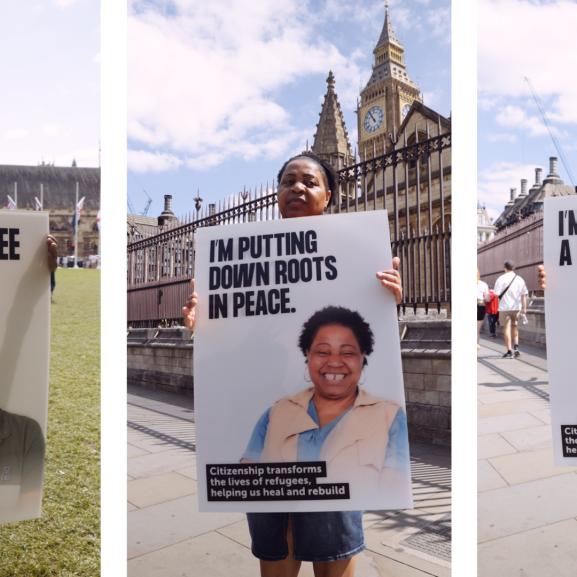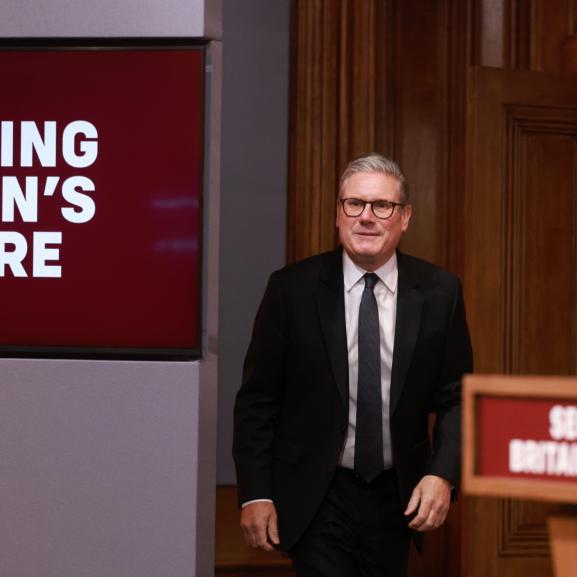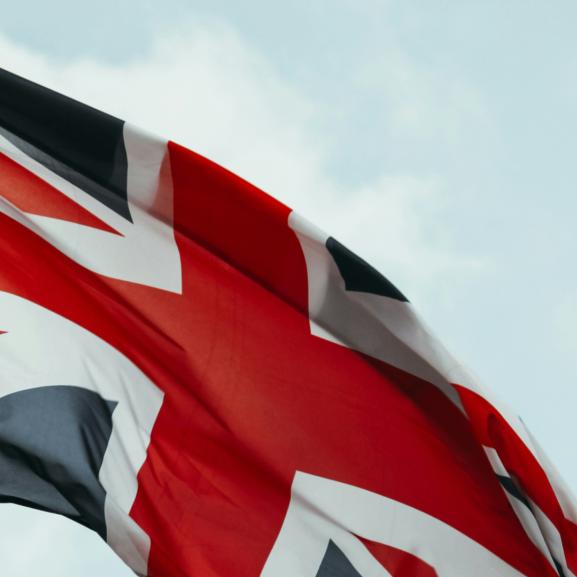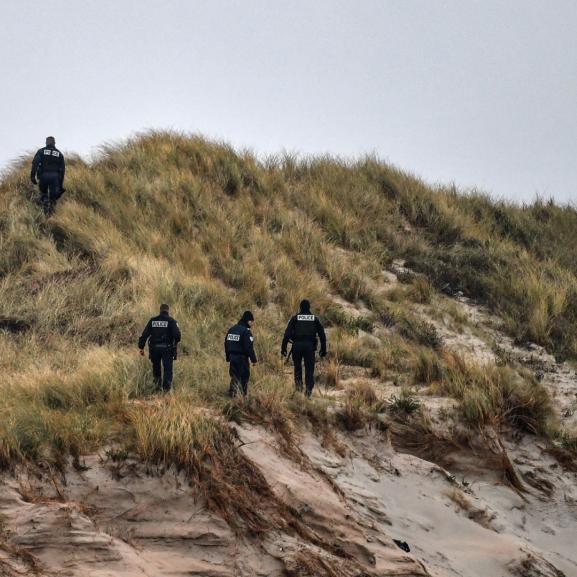'Illegal Migration' Act - Everything you need to know
The Refugee Ban Act – officially known as the ‘Illegal Migration Act’ – is the Government’s latest inhumane and cruel attempt to strip away the basic rights of torture survivors and refugees. Read below for everything you need to know about the new law.
What is the Illegal Migration Act?
The Refugee Ban Act was announced by the Government on 7 March 2023, before becoming an Act on 20 July 2023. It's the latest piece of legislation targeting the rights of refugees and torture survivors. It effectively bans the right to seek asylum in the UK.
The purpose of the Act is to deter refugees from seeking safety in the UK. It does this by punishing people who take ‘irregular’ journeys to the UK, such as arriving via small boat, stowing away in a lorry, or flying into the UK without a legitimate visa. It places a duty on the Home Secretary to oversee the removal of anyone who enters the UK outside of normal immigration laws or has travelled through a ‘safe third country’ – even if they’re fleeing persecution or torture.
Most people seeking asylum have little choice but to take dangerous journeys and don’t have the option to use the Government’s so-called ‘safe and legal routes’. Internationally, less than 1% of the world’s refugees can access resettlement schemes run by the UN Refugee Agency (UNHCR). No refugee visa exists for people who need to quickly leave their country and airlines get fined if they allow refugees to travel to the UK without valid visas.
Historically, when a country becomes unsafe and begins to produce refugees, the UK will start denying those nationals visas that would allow people to access planes and arrive in the UK quickly and safely as a means of seeking safety (applying for asylum) – this happened at the beginning of the Syrian conflict in 2015.
Much of the Refugee Ban Act – which the Archbishop of Canterbury described as ‘morally unacceptable and politically impractical’ – not only contradicts the UK’s commitments to international law, but it also erodes the UK’s reputation as a leader in refugee protection.
At Freedom from Torture we call it the ‘Refugee Ban Act’ simply because it’s a piece of anti-refugee legislation. It effectively extinguishes the UK’s asylum system. It is unfair, inhumane and unlawful.
Join a movement of more than 170,000 people
What is wrong with the Refugee Ban Act?
The Act won’t stop small boats
The Government has promoted the Act with its ‘Stop the Boats’ slogan – but the Act targets a much wider group of people than just those crossing the Channel. In 2022, less than half of asylum applications in the UK were made by people arriving on small boats. The Act is nothing short of a disguise to shun the Government’s responsibility for providing protection to refugees.
There’s also no shortage of evidence that shows past attempts to deter refugees simply don’t work. The Government’s own statistics show that recent changes to the law – like the Nationality and Borders Act 2022 – have not reduced the number of people arriving in the UK.
Our research on why torture survivors seek protection in the UK explores some of the reasons that survivors flee their country of origin and arrive in the UK. Overwhelmingly, our research showed us that people have good reasons for seeking safety in the UK rather than another country. This could be because they have a family member or friends in the UK, they speak English, or they perceive the UK to be a country that respects human rights. Our report also shows that the Government’s deterrent approach will ultimately fail because it doesn’t acknowledge the factors that push refugees to seek safety in the UK.
Refugees could be indefinitely detained
The Act introduces new powers for the automatic and indefinite detention of anyone who is deemed to have entered the UK illegally. The Home Secretary’s power to detain applies to everyone who is subject to removal, even children, families and pregnant women.
The period of detention allowed is any length that is judged to be ‘reasonably necessary’ by the Home Secretary – there is no indication given in the Act of how long this should be or what criteria will be used.
From our work with torture survivors, we know that many survivors are particularly vulnerable to harm in detention. Many survivors experience re-traumatisation, whether that’s recall of torture experiences or deterioration of existing trauma symptoms.
The Act is not compatible with international law
Even though the UK is no longer part of the European Union, it still has obligations under the European Convention on Human Rights (ECHR), as well as other international treaties like the UN Refugee Convention. In fact, the UK played a crucial role in drafting both the ECHR and the Refugee Convention in the aftermath of WWII and the Holocaust.
The Refugee Ban Act puts in turmoil many of the UK’s obligations under international law – like the commitment to not return individuals to a country where they might be subjected to persecution (the principle of non-refoulement).
Many voices like the UNHCR (the UN refugee agency) have expressed serious concern that the Act would not only undermine the UK’s humanitarian traditions but it would also breach its obligations under international law. This is important because if the UK backslides on its commitments to refugees there is nothing stopping other countries taking a similar approach.
At its worst, the UK could start a chain reaction that sees other countries refusing to make decisions on refugees’ protection claims because of how they arrived. If this happens, it will become even harder for people to leave a situation of danger and find safety in another country.
The Act fails without the Rwanda scheme
The Refugee Ban Act is highly reliant on the Government’s ability to make removal arrangements with a ‘safe third country’ like Rwanda. But in June 2023, the Court of Appeal ruled that Rwanda is not a safe country for refugees to be sent to – meaning that the Government’s ‘cash for humans’ scheme is deemed unlawful.
People from countries like Afghanistan, Syria and Iran – who make up a huge number of ‘irregular’ arrivals to the UK – will not be automatically removed back to their country of origin under this new Act. This is because the UK recognises that people from these countries have high refugee grant rates, meaning it would be unsafe for these people to be returned to their country of nationality. However, the Act also refuses these refugees permission to remain in the UK and secure a legal status.
At the moment, the Government has no deals with other countries where refugees would be processed. This means a large number of people will be subject to indefinite detention while the UK tries to remove them to another country. If this isn’t practically possible, we anticipate people will be released from detention but left in legal limbo, with the UK refusing to make a decision on their asylum claim. This population will be incredibly vulnerable to exploitation and abuse, with no ability to rebuild their life in the UK.
What you can do to help us fight the Illegal Migration Act
At Freedom from Torture, we’re fighting the Government’s cruel and inhumane Act. But we need your support:
- Donate to support our work: Please consider donating to help us keep fighting for a fairer asylum system, and to provide survivors of torture with therapy, financial assistance and ongoing support.
- Read our policy briefing: Together with other charities, we produced a short document that explains in more detail some of the key problems with the Refugee Ban Act and lays out an alternative vision for the UK’s asylum system.
The continued risk to life in the Channel is a serious problem and no one wishes to see a continuation of the loss of life. But the Refugee Ban Act is not the solution.
The recent increase in the number of small boats is an obvious result of the mismanagement of the UK’s asylum system, the securitisation of the UK’s borders, as well as an escalation in conflict around the world.
We believe the UK can be a place of hope and safety for people fleeing persecution and torture. And that means holding on to the principles of protection and international solidarity.
Banner image credit: Andrew Aitchison / In pictures via Getty Images






